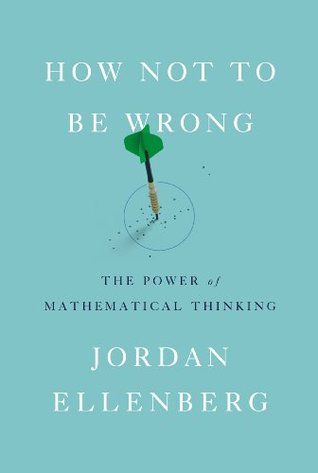More on this book
Community
Kindle Notes & Highlights
Read between
June 25 - July 20, 2019
Are we trying to figure out what’s true, or are we trying to figure out what conclusions are licensed by our rules and procedures?
What’s justice here—to punish the guilty and free the innocent, or to follow criminal procedure wherever it leads us?
Are we, as Fisher thought, trying to figure out which hypotheses we should actually believe are true? Or are we to follow the Neyman-Pearson philosophy, under which we resist thinking about the truth of hypotheses at all and merely ask: Which hypotheses are we to certify as correct, whether they’re really true or not, according to our chosen rules of inference?
A purely formal geometry is a geometry you can in principle do without ever having seen or imagined a point or a line; it is a geometry in which it’s irrelevant what points and lines, understood in the usual way, are actually like.
I once met a historian of German culture in Columbus, Ohio, who told me that Hilbert’s predilection for wearing sandals with socks is the reason that fashion choice is still noticeably popular among mathematicians today.
once met a historian of German culture in Columbus, Ohio, who told me that Hilbert’s predilection for wearing sandals with socks is the reason that fashion choice is still noticeably popular among mathematicians today.
“The typical working mathematician is a Platonist on weekdays and a formalist on Sundays.”
The popular image of the lone (and possibly slightly mad) genius—who ignores the literature and other conventional wisdom and manages by some inexplicable inspiration (enhanced, perhaps, with a liberal dash of suffering) to come up with a breathtakingly original solution to a problem that confounded all the experts—is a charming and romantic image, but also a wildly inaccurate one, at least in the world of modern mathematics. We do have spectacular, deep and remarkable results and insights in this subject, of course, but they are the hard-won and cumulative achievement of years, decades, or
...more
Genius is a thing that happens, not a kind of person.
A year later, when the faculty at Göttingen balked at offering a position to the great algebraist Emmy Noether, arguing that students could not possibly be asked to learn mathematics from a woman, Hilbert responded: “I do not see how the sex of the candidate is an argument against her admission. We are a university, not a bathhouse.”
quantitative “social mathematics”—what we now call “social science”—ought to have a part in determining the proper conduct of government.
Math gives us a way of being unsure in a principled way: not just throwing up our hands and saying “huh,” but rather making a firm assertion: “I’m not sure, this is why I’m not sure, and this is roughly how not-sure I am.” Or even more: “I’m unsure, and you should be too.”
A reasonable person believes, in short, that each of his beliefs is true and that some of them are false.”
We are tolerant of contradiction, to a point. As F. Scott Fitzgerald said, “The test of a first-rate intelligence is the ability to hold two opposed ideas in the mind at the same time, and still retain the ability to function.”
Proving by day and disproving by night is not just for mathematics. I find it’s a good habit to put pressure on all your beliefs, social, political, scientific, and philosophical. Believe whatever you believe by day; but at night, argue against the propositions you hold most dear. Don’t cheat! To the greatest extent possible you have to think as though you believe what you don’t believe. And if you can’t talk yourself out of your existing beliefs, you’ll know a lot more about why you believe what you believe. You’ll have come a little closer to a proof.
What’s true is that the sensation of mathematical understanding—of suddenly knowing what’s going on, with total certainty, all the way to the bottom—is a special thing, attainable in few if any other places in life. You feel you’ve reached into the universe’s guts and put your hand on the wire. It’s hard to describe to people who haven’t experienced it.
The lessons of mathematics are simple ones and there are no numbers in them: that there is structure in the world; that we can hope to understand some of it and not just gape at what our senses present to us; that our intuition is stronger with a formal exoskeleton than without one. And that mathematical certainty is one thing, the softer convictions we find attached to us in everyday life another, and we should keep track of the difference if we can.
When are you going to use it? You’ve been using mathematics since you were born and you’ll probably never stop. Use it well.


